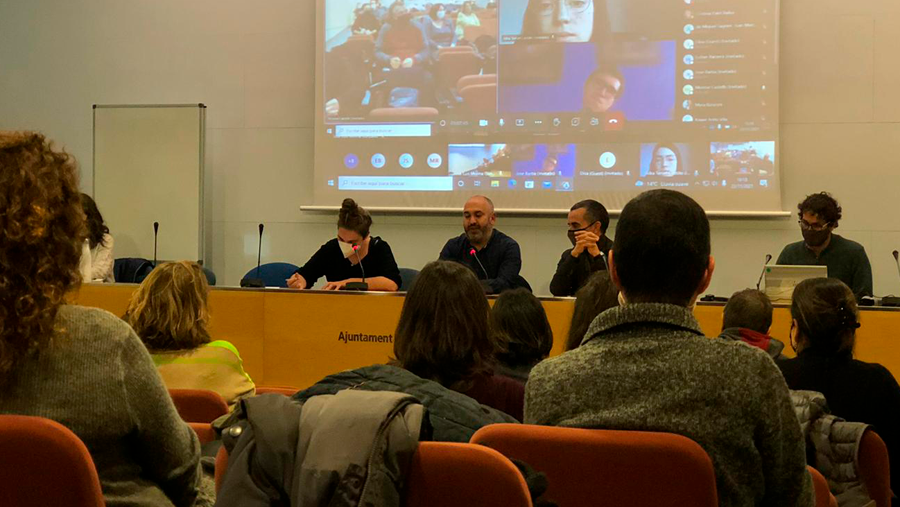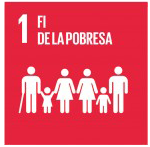The ECIU University presents food safety challenge results in El Prat de Llobregat
The ECIU University presented on 23 November the results of the challenge on “Transform the free food distribution program guaranteeing alimentary security for vulnerable groups”, conducted under the leadership of the Universitat Autònoma de Barcelona (UAB) and with the partnership of the ABD Association and the El Prat de Llobregat City Council, as part of the development of the “La Botiga” project.

The students working on this project, from different academic disciplines and countries such as Canada, Mexico, the Netherlands and Germany, presented the main results of their work under the coordination of ICTA-UAB researcher Xavier Gabarrell. This is one of the challenges offered by ECIU University, formed by 12 international universities, with the objective of solving challenges and needs existing in the real world.
The challenge was based on the creation and management of “La Botiga”, a self-managed co-op food store with a positive social and environmental impact on the community which would be running it, El Prat de Llobregat. For this reason, students worked with a learning methodology based on change, in which they analysed different models existing around the world and developed organisational proposals which would allow them to reach their objectives. The objective was to rethink and transform the current model of food security (free and subsidy-based), while bearing in mind the whole food value chain, its stakeholders, policies and practices, and guarantee meeting the needs of the most vulnerable groups.
In this sense, organisational proposals were presented from a social, environmental, economic and legal point of view; all of them related to the local ecosystem’s food, economy, cooperative and social services sectors. The ideas presented by participants in the challenge responded to the issues of self-supply, sustainability, circular economy, cooperation and participation, as well as education.
Thus, the proposed “La Botiga” model guarantees access to food for the whole community, with special attention put on the most vulnerable groups, through a system of agro-ecological production that prioritises the local production of foods and a network of local markets. At the same time, it guarantees a fair price to producers and consumers, reduces packaging waste and minimise the impact on the environment through 0 km production, fostering zero squandering of food and supporting the local economy. The initiative promotes a change in lifestyle and diet, equality, social inclusion and participation, while also educating in environmental issues.
UAB Vice Rector for International Relations Màrius Martínez highlighted the importance of this challenge-based methodology and of the collaboration among other sectors of society. “It is the best way that the UAB has to work towards the future, working together on solving social challenges, because they affect us all”. The coordinator of this challenge, ICTA-UAB researcher Xavier Gabarrell, pointed out that challenge-based projects allows students complement their theoretical training traditionally provided in classrooms with a new vision of how to learn by doing. “The ECIU University is a key driver of the transformation of the UAB”, va dir Gabarrell.
The project alsoo included the participation of UAB researchers José Luis Molina González and Jordi Verdú Tirado; technician at the El Prat de Llobregat City Council Arnau Ballester, as well as international students Alba Teruel Castillo, Andrea López, Elisa Marchini, Md Tanvir Alam Chowdhury, Oluchi Obi Busquet and José Antonio Barba. The ABD association played an important role in defining the project and the people who would be managing “La Botiga”.
“Prevention of Textile Waste” Challenge
During this first semester, students also worked on the challenge on “Prevention of Textile Waste”, with the participation of Mercavallès and focused on domestic consumption of textile products and how to set down sustainable consumption, substitution and elimination habits. The participans searched for ways to prevent generating new wates, created a project which allows raising awareness amongst the community and defined the infrasttructure needed to reduce textile waste.
The UAB, with Sustainable Development Goals
Reduced inequalities
 No poverty
No povertySustainable cities and communities